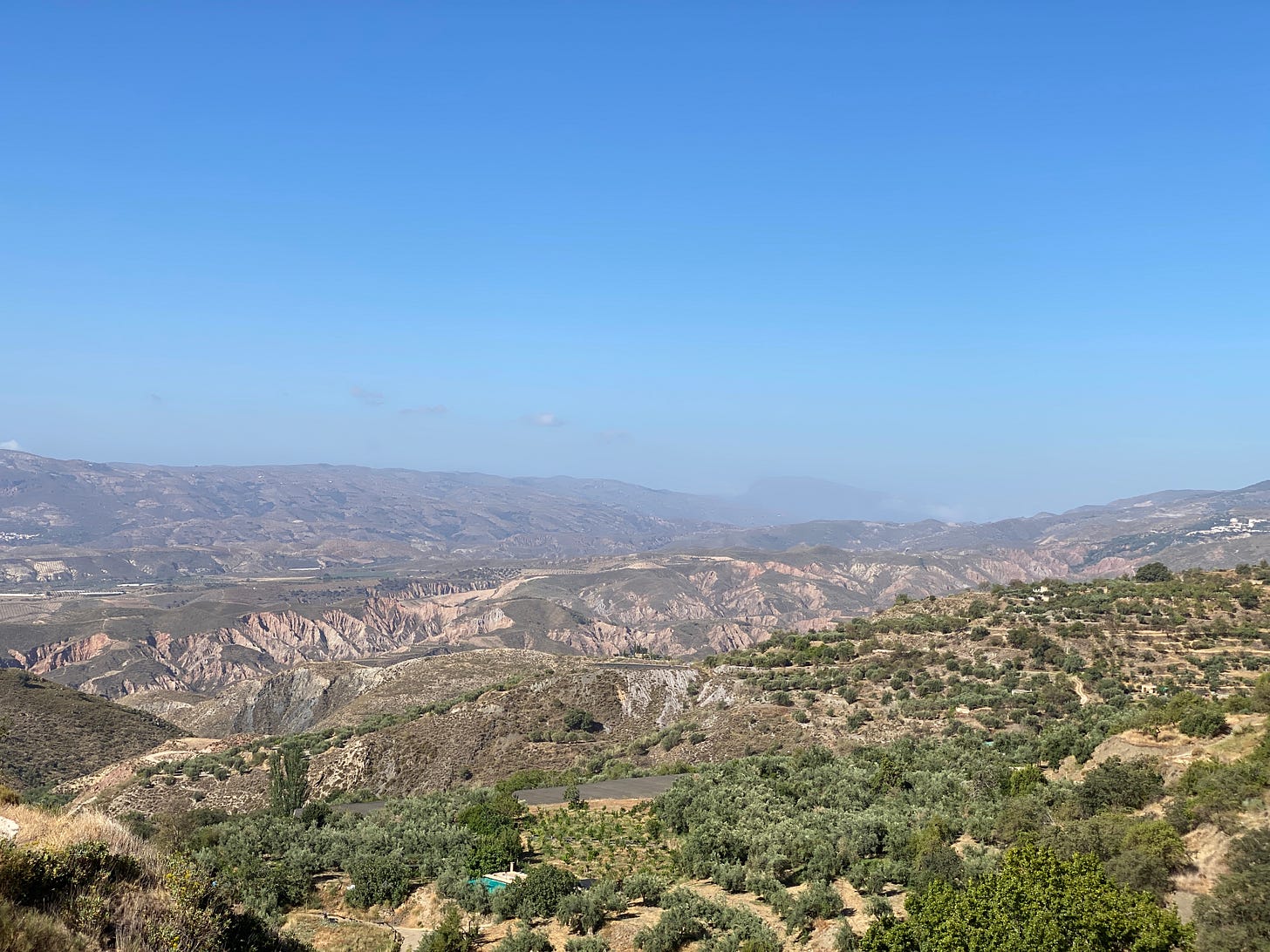I’m writing this from Mairena, a small village in the Alpujarras, a thousand metres above sea level. It’s not high enough to get altitude sickness, but I do feel a bit spaced out.
It's fine. I’m on holiday. Or, to be precise, a yoga retreat and my only commitment is a few hours a day developing physical perfection and spiritual enlightenment. My time is my own and I am doing nothing. There is no entertainment here: no bar, no restaurants, just yoga, pranayama, two meals a day, chatting with the yogis and thinking about routines.
This is my fifth summer in a row in Mairena and barely anything has changed. It’s as if I woke up exactly where I was a year ago and the closest I’ve come to feeling like I’m in Groundhog Day (Harold Ramis, 1993). I feel like I know the village and its people as intimately as Phil Connors (Bill Murray) knows Punxsutawney.
If you say that an experience is like Groundhog Day it's usually meant negatively. But anyone who has watched the film to the end will know that it is by repeating the same day (in one estimate he lives that day for nearly 34 years) Connors’ cynical and grasping nature is worn down. By the end of the film, life is a dance where everything he does is graceful.
Isn’t that what we aim to do when we establish a daily routine? We figure out what makes us happy, healthy, and productive, then try to do more of it every day.
Whenever I attend a retreat I can’t believe how good I feel and aim to live better in my normal life. I resolve to drink less, eat wholesome food, meditate daily, and exercise more. I start thinking about my perfect routine.
This is not a new thing for me. A perfect routine is something I’ve been thinking about since reading about the daily habits of Arthur Schopenhauer:
He arose at seven in the morning and had a bath but no breakfast. He drank a cup of strong coffee before sitting down at his desk and writing until noon. After which he ceased work for the day and spent half an hour practising the flute, on which he became quite a skilled performer. He went out for lunch at the Englischer Hof. After lunch he returned home and read until four. When he left for his daily walk: he walked for two hours no matter what the weather. At six o’clock he visited the reading room of the library and read The Times. In the evening he attended the theatre or a concert, after which he had dinner at a hotel or restaurant. He got back home between nine and ten and went early to bed.1
What I love about Schopenhauer’s routine is his balance of work, play, exercise, and entertainment. It allowed him to cultivate ideas without compromise, leaving behind a set of timeless works.
What’s absent is the kind of duties that make up most lives. He had no kids, no partner, no job, no religion, few relatives, few close friends, and zero interest in contributing to civic society. Schopenhauer was one of the freest men who ever lived … and he was miserable:
“Today it is bad, and day by day it will get worse―until at last the worst of all arrives.”
Purely based on outcomes, Schopenhauer's routine is not a great template.
If you have any external commitments in the world, it is going to be difficult to divide the day into rigidly assigned hours. Other people will resist your calendar boxes. And, even if you did cut your ties to society, you are still bound by internal obligations. Let’s say you have your day planned out: you are going to meditate, do yoga, eat a coconut, write a chapter of your novel, have lunch with a friend, and so on. What happens to the routine if you can’t sleep? Your zombie self doomscrolls on the phone all day, unable to focus. Rule number one of any routine: make sure it helps you to get good sleep.
In a hypercompetitive world, the morning routine has become an obsession. It's not just about how early you get up, it is also about how you greet the day. Some people start the day with affirmations, exercise, an hour of meditation or a cold shower. Some people start the day with all of these. But it’s difficult to fit everything into the prescribed 24 hours.
At the end of a ten-day silent meditation retreat, SN Goenka advises students to meditate for an hour in the morning and an hour in the afternoon. Anything less and they’ll regress. He says that if they're struggling to find the time, wake up an hour earlier. Two hours sounds like a lot but look at how much time you spend on the phone.
What gets lost in a meticulously planned day is the freedom of serendipitous activity. Would you rather start the day with a green smoothie or join Lou Reed in the park?
Just a perfect day Drink sangria in a park And then later When it gets dark we go home Just a perfect day Feed animals in the zoo And then later a movie, too And then home
Perhaps the best way to plan a day is with the big rocks method. This has become a cliché in self-help but it makes objective sense. If you fill a jar (time) with sand (trivial tasks) you can’t fit in any rocks (important tasks). If you start with the rocks, you can then fit smaller pebbles and sand in the gaps. Identifying what is important—the big rocks—is where things get tricky. What are your rocks?
From: RJ Hollingdale’s Introduction to Schopenhauer’s Essays and Aphorisms









Great article & I understood it all! ♥️
I’m taking a happy, vicarious ride on your Mairena musings. Send my love to Laura and Kia, etc. Meanwhile, I’m swimming with the sharks in NY.